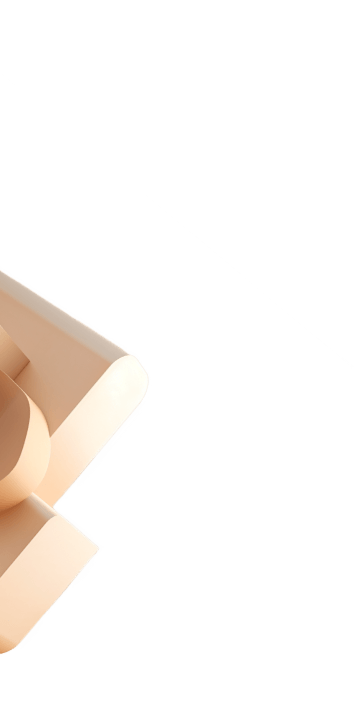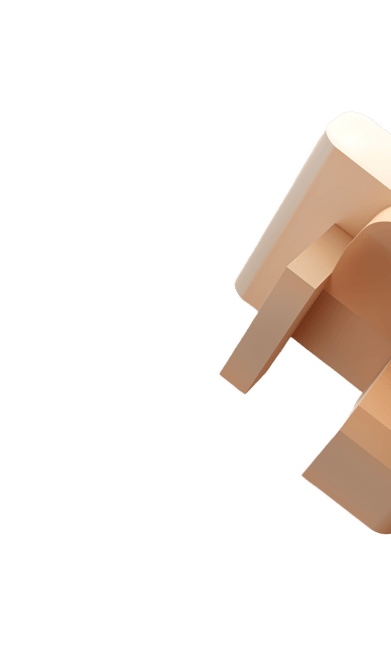New build mortgages
Are you thinking of buying a new build? Here is everything you need to know about how to secure a mortgage on a newly built property, and more.
What is a new build?
A new build is often considered a home that's brand new and no one has ever lived in.
Some mortgage lenders have different definitions of a new build.
Nationwide defines a new build as a home that's been built, converted or refurbished in the past 2 years.¹
Clydesdale Bank includes any property that has not been lived in before. And any property that's being sold or marketed by the builder or developer.²
You can buy new build homes “off plan”. This means buying a property before it's built.
What's the mortgage process for buying a new build home?
You can buy a new build home with a normal mortgage or with a specialist new build mortgage.
When looking for a new build mortgage look out for:
higher interest rates
larger deposit requirements
timescales
lender restrictions
The interest rate on your mortgage might be higher when you buy a new build home.
This is because buyers normally pay a premium for a new build.
A new build premium means that it costs more to buy a new build than it would a similar but older home.
This means lenders assume new builds will drop in value over time.
Lenders tend to set a lower maximum loan to value (LTV) ratio on new build mortgages.
This means you may need to save a bigger deposit for a new build property.
The LTV is the amount borrowed on a mortgage, compared to the value of property.
For example, if you put down a 20% deposit, you’ll need an 80% LTV mortgage.
The mortgage you use to buy a new build will need to work together with the developer’s timescales.
Some issues that might come up are:
delays in the build might lead to your mortgage offer expiring
strict completion deadlines set by the developer
Some lenders do not lend on any new builds. Others only lend on certain property types or limit how many homes they’ll lend on per development.
A lot of lenders will not give you a mortgage to buy an off-plan new build.
New builds and Help to Buy
Help to Buy was available for buyers who want to buy a new build. The loan was interest free for the first five years.
The Help To Buy Scheme has now officially ended.
Is buying a new build a good investment?
There are pros and cons to buying a new build home.
Pros of new build
It’s brand new
You’ll be the first person to live in the property and it’ll be a blank canvas.
If you buy off plan, you may be able to choose kitchen and bathroom suites and white goods like fridges.
Low maintenance
A new build property is unlikely to need major repairs. It’s also likely to be energy efficient with double glazing and insulation.
More affordable
If you use Help to Buy, you’ll only need a 5% deposit to buy a new build.
Some developers will pay your stamp duty or legal fees when you buy a new build, or part exchange your old home.
Warranties
Most new builds come with a 10-year warranty. Often from the National House Building Council (NHBC), Local Authority Building Control Warranty (LABC) or Premier Guarantee.
Cons of new build
Premium pricing
New build homes cost more than similar older properties. They often fall in value once they’re no longer “new”.
New builds tend to be smaller than older homes.
Extra costs
New build leasehold flats often come with high service charges.
Deeds for new builds may mention that the owner is responsible for paying estate maintenance charges. Or the developer if they extend or change their property.
These costs are not regulated and can be high.
It might not be perfect
Poor quality materials or rushed work can result in new builds with “snags” or faults that need fixing.
According to the House Builders Federation, a third of buyers said their new home had more snags than expected.³
Building issues
There may be delays in building your home.
If your new build home is ready before others on the estate, you may have to live next to ongoing building work.
Do you pay stamp duty on a new build?
You have to pay stamp duty on the total cost of a new build home.
This’ll be the sale price plus the cost of things like fitted kitchens and bathrooms.
The developer will report any extras of a financial value to your solicitor. Your solicitor will calculate your stamp duty bill.
More aboutstamp duty.
Questions to ask when buying a new build
Is the property leasehold or freehold?
Does the property come with any agreement conditions?
How do I get any snags corrected?
When will I need to pay a deposit, exchange contracts and complete?
What's included with my new build?
What does the new home warranty include?
Can we negotiate on the price?
When will the development be finished?
Step by step guide to buying a new build
Speak to a mortgage broker to find out how much you can borrow as a mortgage.
Decide if Help to Buy is right for you.
Work out the other costs involved such as stamp duty, snagging surveys and solicitor’s fees.
Look round the show home or marketing suite of new builds you’re interested in.
Ask sales staff the questions above, plus any others you have.
You can haggle over the price of a new build.
You might ask for a lower price than advertised. Or to include extras such as fixtures and fittings in the purchase price.
You’ll need to pay a reservation fee of £500 to £1,000 when your offer has been accepted.
This is usually taken away from the purchase price on completion.
The developer might recommend a mortgage broker but you do not have to use them.
Compare mortgages from brokers, or go directly to a lender.
You’ll need a solicitor to do the conveyancing or legal work involved in buying your home.
You do not have to use a law firm recommended by the developer. In fact, it’s best not to.
Sign, exchange contracts and pay your deposit via your solicitor.
If you’re buying off plan, the developer will give you a 'short stop' date. This is when they expect to finish work.
They’ll also give you a 'long stop' date. This is the date the home has to be completed by.
Complete the purchase, get the keys and move in.
Enjoy your new build home!
Get a mortgage with Better.co.uk today
Better.co.uk is a fee-free mortgage broker
4.8-star Trustpilot rating from over 9,000 reviews
Compare mortgage deals from over 100 lenders
Get matched with the right legal team with SmartBuyer
Fund a big expense with a Homeowner Loan
What people are saying about Better.co.uk...

Important info & marketing claims
You may have to pay an early repayment charge to your existing lender if you remortgage. Your savings will depend on personal circumstances.
Your home may be repossessed if you do not keep up repayments on your mortgage.
*89% of customers will be better off using Better.co.uk rather than going direct with their lender. Read more on our marketing claims page.
We can't always guarantee we will be able to help you with your mortgage application depending on your credit history and circumstances.
Average mortgage decision and approval times are based on Better.co.uk's historic data for lenders we submit applications to.
Tracker rates are identified after comparing over 12,000 mortgage products from over 100 mortgage lenders.
As of January 2023, Better.co.uk has access to over 100 lenders. This number is subject to change.
For buy-to-let landlords, there's no guarantee that it will be possible to arrange continuous letting of a property, nor that rental income will be sufficient to meet the cost of the mortgage.

